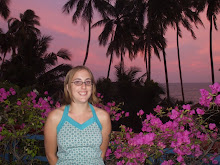As the fourth best school in the city, my school has an interesting social mix of students in the senior grades. It is popular with children of the aspiring middle classes, and also the new elite, who are able to get their children into the school through their contacts. The school is a beacon international school, one of only a few in our province, and therefore teenagers who are particularly talented at languages can obtain scholarships to the senior school even if they are from outside the city area. Some of my student’s homes are hundreds of miles away, and they will only return twice a year, during Spring Festival and the summer break.
Rosa is one of my most engaging students, and is an interesting, talented, tenacious and kind hearted young woman. She lives in a town on the outskirts of the city, in an area classed as rural. Although only eighty minutes away from our school by bus, being born in this area means that her life is considerably harder than those of her urban classmates, even the less well off ones. Her previous schools were badly resourced and poorly staffed, as countryside schools end up with teachers that city schools won’t employ.
She knows that to keep her place at the school and to obtain a much coveted place at university that will allow her to train as an English teacher, she must get higher grades than her urban friends need to. She normally studies from 6am to 10pm, and in her rare holidays (students normally only have Sunday afternoon off school) she is responsible for looking after her young nephew. In this she is more fortunate than some, who have to find paid employment.
The wealthiest of my students don’t even care about the fiendishly hard and stressful college entrance exams, knowing that their parents can afford to send them to a private college or abroad to study, and that their contacts will land them a well paid job later on. If Rosa fails in these exams she in unlikely to be able to break her way out of poverty.
During one of our frequent, but short conversations, between classes she told me that her brother and cousin’s husband are both migrant workers in an oil field in Gansu province. As it is so far away, it has been a more than year since they have come home. They aren’t sure if her three year old nephew will recognize his father when he next sees him.
Rosa told me that the salary is so good that the men feel the sacrifice is worth it. When I asked what it was she told me it was 600 kuai (88 USD) a month plus overtime, more than they can earn here. Despite her scholarship, it must be a considerable economic sacrifice for her family to keep her in school.
Meanwhile, some of her classmates father’s will splurge the equivalent of my very comfortable monthly salary on a single dinner, whilst their wives (and mistresses) shop in designer stores.
The ever widening gap between the rich and everyone else, never mind the poor is simply mind boggling, and surely not conducive to long term social stability. I’ll be interested to see how, and if, the Chinese government tackles it.
This brings me to something I could kick myself for not asking earlier. For many of my students, purchasing a book in English, necessitating as it does a trip to a foreign language bookstore in Beijing, is a proposition as far fetched as flying to London or New York. (An average price for an English paperback is about 100 kuai.) If anyone reading this would be willing to send me an unwanted English language book, please leave a comment and I will be in touch with how to send it to me.
It would mean so much to the person who receives it, and will be a much treasured resource. I am distributing the small collection of books that I have built up here amongst my students, and their joy and gratitude is beyond what can be expressed in words. If you are generous enough to send a book, please make it one without graphic sex or violence.
 Strawberries have recently come into season here, and you can buy a generous portion of ripe strawberries for 2 or 3 kuai (20 or 30p). I love strawberries, but they're so expensive back in the UK that I don't buy them very often (*sob*), so I'm taking the opportunity here to consume as many as possible on a daily basis. I've discovered that the best ones are for sale at the stall in the photo below (the photos of the outdoor fruit and vegetable market were taken a while ago, hence the hats and coats). Her berries are always juicy and full of flavour, but never smushed and slightly going off.
Strawberries have recently come into season here, and you can buy a generous portion of ripe strawberries for 2 or 3 kuai (20 or 30p). I love strawberries, but they're so expensive back in the UK that I don't buy them very often (*sob*), so I'm taking the opportunity here to consume as many as possible on a daily basis. I've discovered that the best ones are for sale at the stall in the photo below (the photos of the outdoor fruit and vegetable market were taken a while ago, hence the hats and coats). Her berries are always juicy and full of flavour, but never smushed and slightly going off. Another welcome seasonal fruit is pineapple, which you can buy as a ready to eat portion on a stick. We've all been wondering what the proper word is for denuding a pineapple of it's outer layers - peeling, shucking, skinning? None of them sound quite right.
Another welcome seasonal fruit is pineapple, which you can buy as a ready to eat portion on a stick. We've all been wondering what the proper word is for denuding a pineapple of it's outer layers - peeling, shucking, skinning? None of them sound quite right.






 I found it hard to believe that I was only forty minutes away from my own noisy and crowded part of the city. It was so quiet that when you were away from the one main road, you
I found it hard to believe that I was only forty minutes away from my own noisy and crowded part of the city. It was so quiet that when you were away from the one main road, you 

 These are frescoes in the Hall, and again, a photo doesn't do them justice. Amazingly you could walk right up and touch them if you wanted to.
These are frescoes in the Hall, and again, a photo doesn't do them justice. Amazingly you could walk right up and touch them if you wanted to.














 These are manto skewers - steamed buns coated in oil, herbs and salt and then barbequed. The closest western food to it would be a bagel filled with garlic butter and then grilled. It's delicious, and I can easily eat three or four.
These are manto skewers - steamed buns coated in oil, herbs and salt and then barbequed. The closest western food to it would be a bagel filled with garlic butter and then grilled. It's delicious, and I can easily eat three or four. 


 At about the point I took this photo I realised that trying to fly a kite and take photos at the same time was going to be more difficult than I thought! I was only out ther for twenty minutes or so before I got bored, I think I actually prefer taking photos of other people flying kites than doing it myself. Really, either the kite is in the air or it's not, and I found that I didn't particularly care which one it was. But here is my butterfly kite in flight...
At about the point I took this photo I realised that trying to fly a kite and take photos at the same time was going to be more difficult than I thought! I was only out ther for twenty minutes or so before I got bored, I think I actually prefer taking photos of other people flying kites than doing it myself. Really, either the kite is in the air or it's not, and I found that I didn't particularly care which one it was. But here is my butterfly kite in flight...









 We'd stop to rest in the watchtowers. The one's that were more restored gave welcome shade too, although we'd have to fight off the vendors trying to sell us water or beer. (Beer?! Are some of the people walking this thing suicidal?)
We'd stop to rest in the watchtowers. The one's that were more restored gave welcome shade too, although we'd have to fight off the vendors trying to sell us water or beer. (Beer?! Are some of the people walking this thing suicidal?)







 this is one of several pictures trying to discourage anti social behaviour such as littering, removing man-hole covers (!) and fly posting...guess what people were doing whilst I was taking this picture...
this is one of several pictures trying to discourage anti social behaviour such as littering, removing man-hole covers (!) and fly posting...guess what people were doing whilst I was taking this picture...









